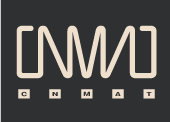Vicki Ray
ecStatic – new music for piano and electronics
Vicki Ray, piano
PROGRAM
Parabiosis (2018) Fay Kueen Wang
Série Bleue (2013) Pierre Jodlowski
Concertino (2015) Nobuyoshi Tanaka
(for piano, vocaloid and electronics)
INTERMISSION
Sometimes I Feel Like My Time Ain’t Long (2018) Ben Phelps
Theme
1:1
10:9
4:3
3:2
2:1
4:1
10:1
20:1
50:1
NOTES
“Parabiosis refers to the anatomical joining of two individuals, and is inspired by artist couples who create and perform together, and influence each other. If references such couples as Marina Abramovic and Ulay, Bjork and Matthew Barney, and also my personal and artistic life with my husband. The piano and the tape are like two individuals tangled around each other, growing and changing together into single, new unit. The piece reflects one’s life together, starting from a simple figure, adding elements, textures, and layers to create a twin body, and building up to a colossal life form that connects with a chaotic world.” (F.Wang)
Série Bleue is the fifth score part of the “Séries” cycle. After Série Noire (based on thriller), Série Blanche (dedicated to absurd), Série-C (tribute to John Cage) and Série Rose (about pornography), this piece is directely inspired by my personal encounter with the blue monochromatic paintings from Yves Klein.The idea was here to describe a minimalistic state but in which some resonances, echoes and tension progressively appear. The music starts very slowly and the material consists of one main chord and melodic patterns which are repeated and softly developed. Indeed, one can hear in the soundtrack some tiny accidents, some little cracks which will grow up and contaminate music - such as in Klein’s painting. In the middle of the piece, a clear pulse appears and the music changes into a complete different color. It may be some kind of way to express some strange feeling linked with those monochromatic blues from Klein. Those paintings have the strange power to absorb ones mind and some escapism is somehow needed ! The electronic part is based mainly on electric bass sounds which were performed in studio and which are acting like a presence, next to the pianist. Those low sounds create some harmonic fundaments and lead the music to some electric counterpoints where energy is slow but powerful. (P.Jodlowski)
In the Concertino I tried to find a sound that would represent the current urban culture and the darkness of mind of modern people. I tried to construct music that is “enjoyable”, exciting fresh but also filled with anxiety and despair. Such a mixture will present questions. I wanted to represent the diversity of the present era. (N. Tanaka)
Sometimes I Feel Like My Time Ain't Long is an exponentially expanding, time-stretched set of variations. The solo piano accompanies a wax cylinder recording from the Alan Lomax collection of American Folk Music held at the Library of Congress. The source material is a simple gospel tune sung a cappella. What begins as a 20 second verse is eventually stretched into a 15 minute movement. As the original recording is stretched over longer and longer periods of time, what originally sounded as a single note becomes complex multitudes of pitches. We start to notice all the microtonal imperfections in the original performance: the tension between the microtonal complexity of the vocal lines and fixed equal-temperament of the piano are explored, as is our very perception of musical time. (B.Phelps)
Described as “phenomenal and fearless,” Grammy nominated pianist Vicki Ray is a leading interpreter of contemporary piano music. Known for thoughtful and innovative programming which seeks to redefine the piano recital in the 21st century, Vicki’s concerts often include electronics, video, recitation and improvisation. As noted by Alan Rich, “Vicki plans programs with a knack for marvelous freeform artistry…what she draws from her piano always relates in wondrous ways to the senses.” As a founding member of Piano Spheres, an acclaimed series dedicated to exploring the less familiar realms of the solo piano repertoire, her playing has been hailed by the Los Angeles Times for “displaying that kind of musical thoroughness and technical panache that puts a composer’s thoughts directly before the listener.”
As a pianist who excels in a wide range of styles Vicki Ray’s numerous recordings cover everything from the premiere release of the Reich You Are Variations to the semi-improvised structures of Wadada Leo Smith, from the elegant serialism of Mel Powell to the austere beauty of Morton Feldman’s Crippled Symmetries. Recent releases include David Rosenboom’s Twilight Language on Tzadik Records and Feldman’s Piano and String Quartet with the Eclipse Quartet on Bridge Records. Her 2013 recording of Cage’s The Ten Thousand Things on the Microfest label was nominated for a Grammy.
Ms. Ray’s work as a collaborative artist has been extremely diverse and colorful. She was the keyboardist in the California E.A.R. Unit and Xtet. Her chamber music contributions to the vibrant musical life in greater Los Angeles include frequent performances on the Dilijan, Jacaranda and Green Umbrella Series. She performs regularly on the venerable Monday Evening Concert series and was featured in Grisey’s Vortex Temporum on the 2006 celebration of the re-birth of the series. Vicki has been heard in major solo roles with the Los Angeles Philharmonic, the Los Angeles Master Chorale, the San Francisco Contemporary Music Players, the German ensemble Compania, and the Blue Rider Ensemble of Toronto, with whom she made the first Canadian recording of Pierrot Lunaire.
She is currently head of the piano department at the California Institute of the Arts, where she has been on the faculty since 1991. In 2010 she was awarded the first Hal Blaine Chair in Music Performance. For the past eight years she has served on the faculty at the Bang on a Can summer festival at the Massachusetts Museum of Contemporary Art.
For current information on upcoming concerts please go to vickiray.net/concerts
Vicki Ray is a Steinway Artist


 Find
Find